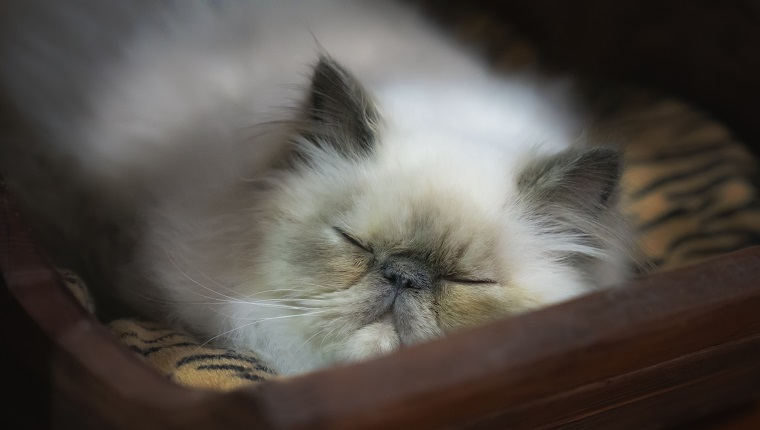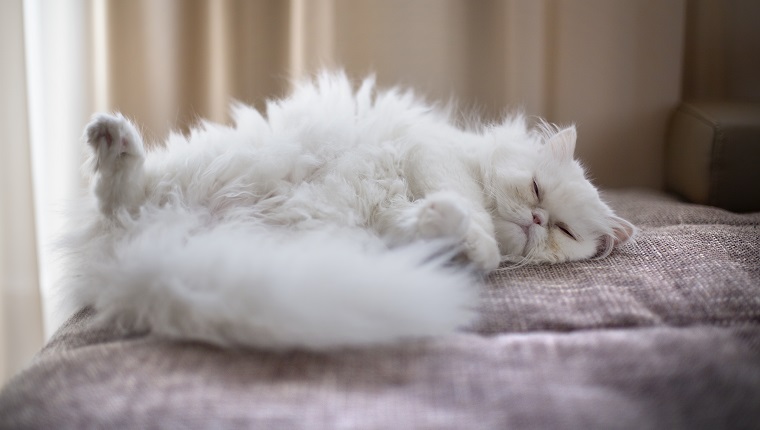Cat snoring sounds like it might be a cute or funny thing to hear, but when it becomes a frequent occurrence, it can actually be a signifier of a more serious underlying problem.
While dogs are much more prone to snoring than cats, there are certain cat breeds, including Persians and other flat-faced kitties, who are more likely to snore.
If you see signs that your cat might be starting to snore too often, then you must consult your veterinarian for a proper diagnosis and advice. Here’s what you should know about the symptoms, causes, and treatments of snoring in cats.
Symptoms Of Cat Snoring
Cat snoring sounds very much like the way humans or dogs snore, so don’t worry if you occasionally hear your cat make these sounds while snoozing.
But some of the more serious symptoms that might accompany the snores include:
- Seeming to snore while awake
- Breathing through the mouth
- Sneezing
- Runny discharge from the nose
- Discharge from the eyes
Causes Of Cat Snoring

The cause of cat snoring could be a number of things and involve more than a few factors.
Some of the most common causes include:
- Abnormal sleeping position
- Restricted airways
- Rhinitis
- Obesity
- Upper respiratory infection
- Nasal blockage
- Allergic reactions (especially to pollen or dust)
Additionally, certain cat breeds seem to be naturally more predisposed to snoring than others, including flat-faced brachycephalic felines like Persians.
Veterinary Treatments
Beyond the occasional bout of snoring, you might want to consider consulting your veterinarian if your cat starts to also show some of the symptoms listed earlier.
If your vet conducts a full physical examination of your cat, they might be able to identify the underlying condition that is causing your cat to snore, such as a foreign object lodged in their nasal cavity or a respiratory infection.
In terms of lifestyle and environment changes that can help, you could consider adding a humidifier close to where your cat sleeps.
Additionally, feline obesity could also be a key contributor, so speak to your vet about your kitty’s current diet and see if you should consider any healthier dietary changes.
Does your cat snore a lot? Has your vet given you any advice about it? Tell us all about it in the comments below.









